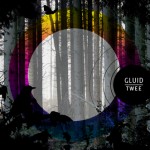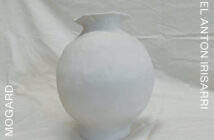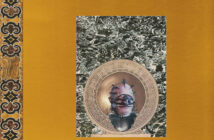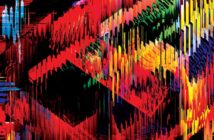
It’s been six years since his stellar, self-titled debut as Gluid, during which time Bram van den Oever has been busy filling dance and theatre commissions. His second solo album opens with all the fanfare of a wide-screen, David Lean cinemascopic epic, majestic and sweeping, harp glissandi and power-guitar solo. Complementary scents of both east and west confuse the senses and more than justify the musical question, ‘Where R U From?’ – Gluid is from the Netherlands. So where is he going? Places, in this reviewer’s opinion, after having relished both his debut album and lengthy contribution to esc.rec’s Herfsttonen and the steps forward he has taken since last encountered.
Previously, he worked strictly with field recordings as sound material. Twee on the other hand has been composed mainly on vintage Atari and Akai equipment. The sound is just huge. Passion, grandeur, and tenderness, like a Tomita or Vangelis, who were making their reputations around the time this equipment was state of the art, but unlike their music, Gluid’s is never overbearing. In fact, it could hardly be friendlier and more embrasive. Twee unfolds like a festival, a myriad of voices caught up in a maximalist, multi-coloured whorl, but his control is so total there is no sense of disorientation in the listener. Harp glissandi appearing early in the album by Monica van Zaane, one of the few but essential guest musicians, is echoed electronically as the children’s party ‘Mek’ winds down several tracks later.
Gluid continues to produce music that somehow conjures a very global 21st century and although there are generous doses of glitch beat and toytronic collage, charging-ahead drumming, epic travelogues, sounds for living-room lounging, children´s chanting, sylvan piano, he never even nudges a cliche and is never less than entrancingly melodious.
Despite his limited output, Gluid is one of the most interesting electronic musicians currently at large in Europe.
Stephen Fruitman



